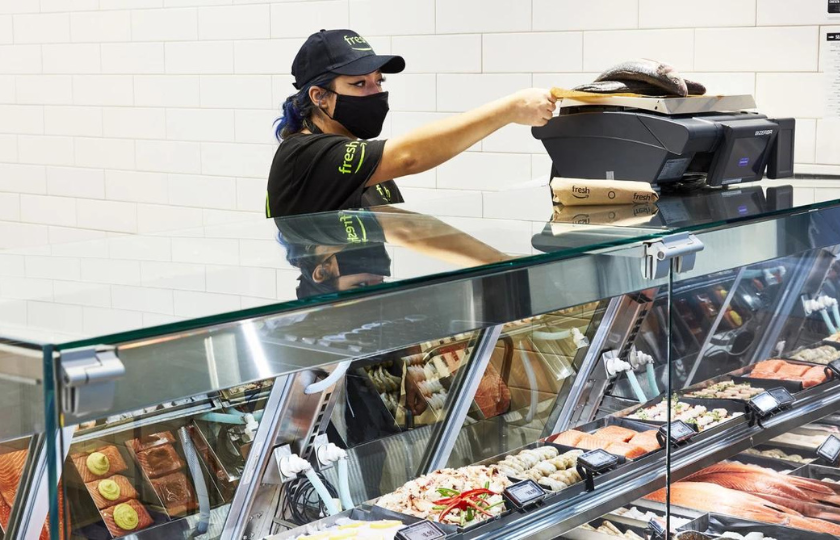Seeking to provide more eco-centric products to customers, Amazon has shared a pledge towards sustainability across its private grocery brands, including Amazon Fresh, Amazon Go, Amazon Kitchen, and Whole Foods Market.
The company’s commitments focus on animal welfare; cocoa, coffee, and tea sourcing; palm oil use, eggs, and paper.
Regarding animal welfare, Amazon says it expects its suppliers to uphold the Five Freedoms framework, which mandates freedom from discomfort, freedom from hunger and thirst, freedom to express normal behaviour; freedom from fear and distress; and freedom from discomfort.
Furthermore, it is to take a zero-tolerance approach to animal cruelty, abuse, and neglect. It will also encourage suppliers to continuously improve animal welfare standards and practices and work toward recognised animal welfare certifications and industry guidelines.
The e-commerce platform also commits to sourcing only cage-free eggs for its grocery products, including shell and liquid eggs sold in cases and used in its kitchen and bakeries. At Whole Foods Market Canada, all eggs must be sourced from cage-free hens.
In addition, the company has pledged to source cocoa, coffee, and tea certified by the Rainforest Alliance or Fairtrade International for its private label selection in Europe.
Meanwhile, in the US, all 365 by Whole Foods Market-branded chocolate, tea, and coffee must be certified by Fair Trade USA or the Rainforest Alliance. Other cocoa products are subject to review and approval.
Whole Foods Market is also a member of Conservation International’s Sustainable Coffee Challenge, a joint effort of companies, governments, NGOs, research institutions, and other companies to transition to sustainable coffee.
As for palm oil use, the company said it only uses certified sustainable oil, or in a small number of cases, it uses “palm oil credits” to cover derivatives. The company said it plans to transition to physically certified palm oil in the near future.
Environmental organisations and people concerned with preserving the rainforest have been vocal against palm oil use for its impact on the environment and animals, such as the orangutans native to the area where palm oil is grown.
Last but not least, the company also shared its commitment to sourcing paper products for Private Brands that are certified by organisations such as the Forest Stewardship Council (FSC), Programme for the Endorsement of Forest Certification (PEFC), and Sustainable Forestry Initiative (SFI). While its other brand, 365 by Whole Foods Market, uses paper products that are either made from 100 per cent recycled materials or FSC certified.
“We are committed to providing transparency to our customers, along with options to shop more sustainably,” said Jeff Helbling, VP for Amazon Fresh.
“We’ve been diligently working to establish our product sustainability commitments since the launch of our grocery, private brands, and we are excited to share these publicly with our customers and partners.”



